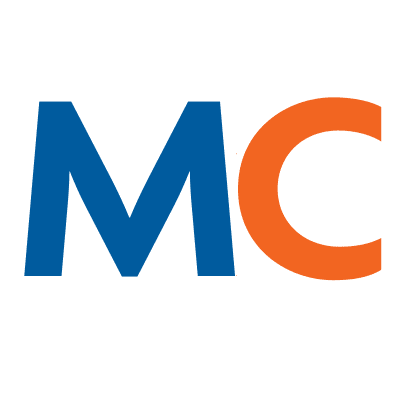- Solutions
- Solutions
- Home Health
- Hospice
- Life Plan Community
- Palliative Care
- Private Duty
- Senior Living
- Skilled Nursing
- Skilled Nursing
- Skilled Nursing Software
- Advanced Insights
- Customer relationship management
- Data and analytics
- Financial & operations management
- Marketing
- Nutrition management
- Referral management
- Regulatory compliance
- Retail management
- Resident engagement
- Revenue cycle management
- Skilled nursing interoperability
- Partners
- Blogs
- Resources
- About

Recognizing malnutrition in the data (Part 2)
Malnutrition is an even greater concern for our seniors in our new COVID world. As we discussed in Part 1 of this blog series, MatrixCare makes it easier for post-acute care providers to assess and monitor the nutritional status of older adults to identify malnutrition and take quick and appropriate action to combat it. In Part 2, we will continue to discuss how MatrixCare’s MealTracker and clinical EMR can arm your nurses, dieticians, nutritionists, clinicians, and dietary managers to recognize malnutrition in your data to help you better manage malnourished resident needs.
The front line
Nurses serve on the front line and have an important role in recognizing factors that place older adults at risk for malnutrition. An interdisciplinary approach between nursing and nutritional services will not only support the identification of malnutrition risks but will help you capture the appropriate diagnosis.
As the Patient-Driven Payment Model (PDPM) supports malnutrition identification, it does not give a true definition of how to capture the diagnosis. Providers, nursing, and dietetic professionals need accurate tools to reinforce their findings upon admission and with recurring assessments. Using a validated and appropriate screening tool is the first step in that process.
Diagnosis under PDPM
Time is of the essence in capturing diagnosis under PDPM. If not identified on the 5-day MDS, a missed opportunity can occur for the next 100 days by not capturing malnutrition. The Non-Therapy Ancillary (NTA) is the sixth payment component which includes nutrition and provides a chance to prove how vital the services are of your RD.
PDPM providers will need to identify criteria and have supporting documentation of that criteria, to capture the diagnosis of malnutrition. Having a validated timely Malnutrition Screening Tool (MST), with a referral to an RD for an assessment to diagnosis will result in significant reimbursement opportunities.
Nutrition interventions
Immediate recommendations and care plan interventions will help manage and resolve the malnourished resident, once identified. Nutrition interventions such as honoring resident preferences, additional meal portions, snacks, and oral supplementation with routine monitoring and evaluation will result in the proper treatment of the malnourished resident. Having a food and nutrition software solution to manage those recommendations and assist in monitoring the care is critical. Integrations from MatrixCare to MealTracker will support your facility’s efforts to conquer malnutrition.
What MealTracker can do for you
MealTracker provides individual resident profile details to better manage the malnourished resident needs. Interventions can be implemented for improved intake at meals, honoring preferences, the timing of meals, and adding snacks to increase and improve caloric intake. MealTracker can help you identify and manage weight loss with our Weight Alert Flag, while also monitoring for a criterion of malnutrition factors by comparing resident BMI. MealTrackers’ Malnutrition Risk Alert feature will help notify care providers of those at risk.
Other key MatrixCare clinical EMR tools include:
- ADLs and Functionality Abilities provide data insights into a resident’s ability with the mechanics of eating and swallowing food.
- Orders help identify medications that reduce appetite or alter the taste of food.
- Pain Assessment helps identify signs of chronic pain or inflammation which can impede appetite and intake.
- Activity level information including bed rest orders associated with the loss of lean mass and a poor appetite are highlighted.
Being able to better manage a critical diagnosis like malnutrition will improve your reimbursement under PDPM, while improving overall interdisciplinary care.
The content in this presentation is for informational purposes only and is provided “as-is.” Information and views expressed herein may change without notice. Given the fluidity of the current regulatory environment due to the pandemic, we encourage you to seek, as appropriate, regulatory and legal advice on any of the matters covered in this presentation.
Request a demo today for a closer look at MatrixCare.
See what MatrixCare can do for you
Amy Wooton
Amy Wooton, RDN, is a registered dietitian licensed in the state of Florida with over 18 years of experience in clinical nutrition leadership for senior communities as well as acute care, food service management, nutrition informatics, and wellness education. Amy is an active member of the Academy of Nutrition and Dietetics, was appointed Vice Chair on the Interoperability and Standards Committee, and is the leader of the Academy’s Nutrition Care Process Workgroup. Amy most recently accepted a Leadership Award from the Florida Academy of Dietetics. She has achieved years of diversified experience in all spectrums and disease improvement and prevention throughout each lifespan. Amy is a dedicated leader and is passionate about the success of nutrition interventions as an electronic solution to healthcare crises.
Related Posts

See MatrixCare in action
Start by having a call with one of our experts to see our platform in action.
MatrixCare offers industry-leading software solutions. Thousands of facility-based and home-based care organizations trust us to help them improve efficiency and provide exceptional care.
© 2024 MatrixCare is a registered trademark of MatrixCare. All rights reserved.







